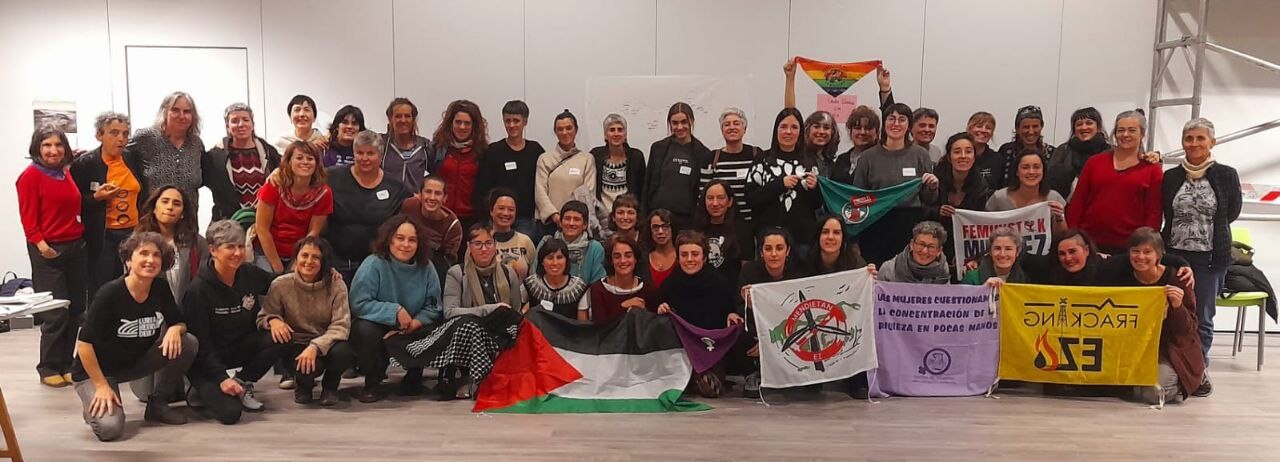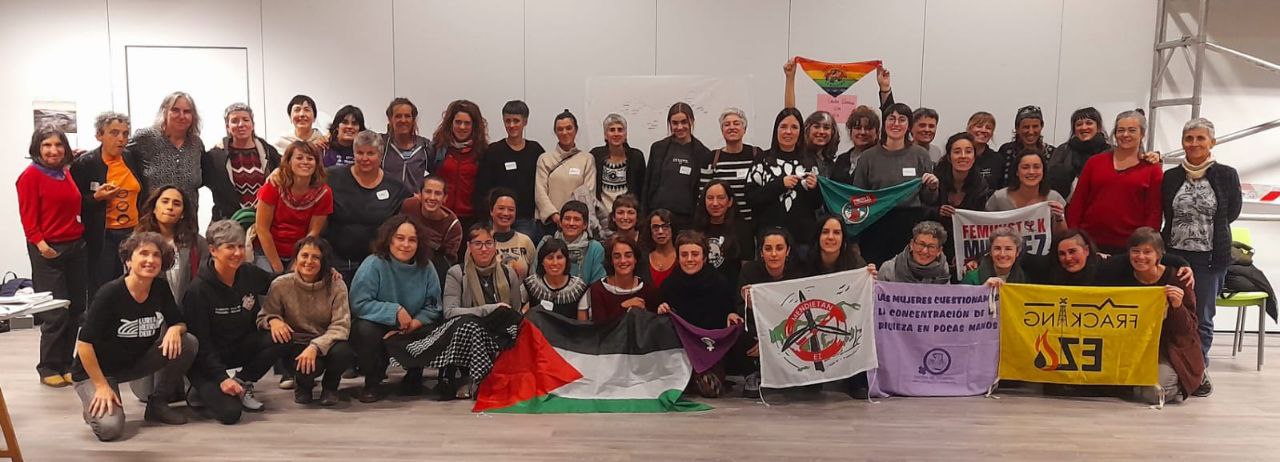Basque is agroecological
- This is how we put an end to the working group on decolonization, in the framework of the meetings “Embodying ecofeminisms in the Basque Country” that took place last November in Arraya-Maezú (Álava). It was the refuge of various expressions of the defense of the territory, a criollo seedlings of fruitful ideas and an abundant harvest of rural and urban ladies eager to unite. But why is it important to decolonize the Basque rural environment?

First, to remember that colonization is not the beginning of history. Before this plundering, which began the primitive accumulation of capital, there was a variety of knowledge associated with the cultivation of the earth and the organization of relations between beings. Colonization, the globalizing expansion of capitalism, has buried this knowledge. However, some of these knowledge remain: crop rotation, mandala orchards, permaculture and agroecology. Their epistemology and g(i)nealogy, here and in various corners of the planet, still beats under the earth. Decolonize, therefore, to recover the ancient wisdom of relationships with nature.
Secondly, to recognize that colonization is still ongoing and has a number of implications for the Territories. Expropriation, the enslavement of people and the commercialization of land are part of the nation-state creation projects that have been built on the invaded peoples. These are extermination projects in which the rural area has had a central position in the economy of dependence and subordination, which has been imposed on the countries of the Global South for five centuries. The Basque Country, having adhered to the European predatory model, inevitably has a geopolitical position. His oligarchy has benefited from this position, and even today the oligarchy continues to be enriched. Decolonize, therefore, to recognize privileges and socialize rights.
Thirdly, to understand that the Basque Country goes beyond its delivery bourgeoisie and that this territory also continues to face the criminal occupation of empires, with the Basque countryside as the main focus of attack: the theft of communal lands, the stigmatization of the (agri)peasant culture, the imposition of the dogmas of the Catholic Church, the greatest latifundist in history, the rape and persecution of peasant women, the prohibition of the native language that originates in these forests. Decolonize, therefore, to honor the witches who have burned us here also for defending the land.
It is the story of small and large silenced revolutions that still exist in the rural area of our territory. In rural areas, it is a daily practice to deprive women of the ownership of the territory in the name of the sustainability of the farm; the lack of quality and close infrastructure and public services; the persecution of natural goods by transnational capital and the exploitation of labour. The lands that once saw our heretical great-grandmothers set on fire are those that today host thousands of migrant workers, without contracts or rights, who assume the most perverse precariousness that continues in the countryside. We want food sovereignty for all, but the Aliens Act only applies to some of us.
The secular political project of expulsion and territorial control is a violation of nature and the rights of people who live and work on the earth. Faced with this, there is a growing diversity of life paths, ethnicities, skin tones and languages that coexist in the greenhouses of our country, not without conflicts. It has never been so obvious that the recovery of stolen land is the language shared by the peoples. It is no coincidence, therefore, that in the orchards of the Basque Country the Basque language has different accents and origins, a common bridge that connects the emancipation of the countryside and the cosmovisions that thirst for justice for the people.
It is the language that translates the symbolic into the real. Language is the root that roots us, the branch that nourishes our senses, and the spore that plants the future. Language is the most autochthonous flourishing of the idiosyncrasy of a people. And in the Basque Country, Basque is the common language of an increasingly diverse people that germinates against all oppression, exclusion and (mono)culture. The mind thinks of the ground that is crushed by the feet. Therefore, if the right to land is the common language of the peoples, the Basque language is pure agroecology.

















